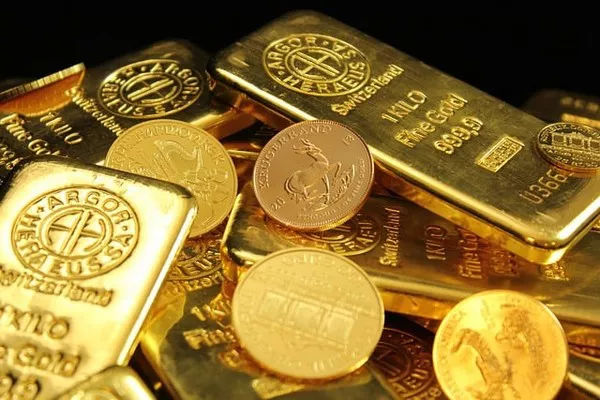In recent times, investors in the UTI Gold Exchange Traded Fund (ETF) have been closely monitoring its share price, which has experienced a gradual decline. UTI Gold ETF, like other gold-based investment vehicles, has traditionally been viewed as a safe-haven asset and a hedge against economic uncertainties. However, several factors have contributed to the downward trajectory of its share price, prompting investors to seek a deeper understanding of the dynamics at play.
1. Gold Price Volatility
One of the primary drivers behind the fluctuation in UTI Gold ETF’s share price is the inherent volatility of the underlying asset: gold. Gold prices are influenced by a multitude of factors, including geopolitical tensions, economic data, currency movements, and interest rates. In recent years, the global economic landscape has been marked by significant shifts, such as the impact of the COVID-19 pandemic and unprecedented fiscal stimulus measures.
During periods of heightened uncertainty, investors often flock to gold as a safe-haven asset, driving up its price. Conversely, when economic conditions stabilize or risk appetite increases, gold demand tends to decrease, leading to price corrections. UTI Gold ETF’s share price closely mirrors these fluctuations in the underlying gold price, resulting in periods of decline as well as growth.
2. Uptrend in Equity Markets
Another factor contributing to the falling share price of UTI Gold ETF is the bullish sentiment in equity markets. Historically, there has been an inverse relationship between gold and equities. When stock markets perform well, investors may allocate more capital to equities, reducing their exposure to gold.
In recent years, global stock markets have experienced robust gains, driven by factors such as low-interest rates, expansive monetary policies, and positive corporate earnings. This bullish equity sentiment has prompted some investors to divert their funds away from gold-based assets like UTI Gold ETF, impacting its share price negatively.
3. Rising Interest Rates
Interest rates play a significant role in influencing gold prices and, by extension, the performance of gold ETFs like UTI Gold ETF. Gold, which does not offer interest or dividends, tends to become less attractive when interest rates rise, as the opportunity cost of holding non-yielding assets increases.
Central banks worldwide have adjusted their monetary policies in response to economic conditions. In some cases, interest rates have been raised or are anticipated to rise in the future. Such developments can dampen investor enthusiasm for gold and lead to a decline in UTI Gold ETF’s share price.
4. Strengthening of the U.S. Dollar
The value of the U.S. dollar is inversely correlated with gold prices. A stronger U.S. dollar makes gold more expensive for holders of other currencies, reducing global demand for the precious metal. Conversely, a weaker dollar tends to boost gold prices.
Over the past year, the U.S. dollar has exhibited periods of strength, driven by factors such as expectations of tighter monetary policy and relative economic strength. This has created headwinds for gold and contributed to the declining share price of UTI Gold ETF.
5. Technical Factors and Market Sentiment
Technical factors and market sentiment also play a role in the performance of UTI Gold ETF. Traders and investors often use technical analysis to make trading decisions based on historical price patterns and indicators. If technical signals suggest a downward trend, it can trigger selling pressure, further driving down the share price.
Additionally, market sentiment, driven by news and events, can have a significant impact on the short-term price movements of UTI Gold ETF. Negative news related to the global economy, geopolitical tensions, or inflation concerns can lead to a surge in demand for gold as a safe-haven asset. Conversely, positive developments may lead to a decline in demand and a corresponding drop in UTI Gold ETF’s share price.
Conclusion
The decline in the share price of UTI Gold ETF can be attributed to a combination of factors, including the inherent volatility of gold prices, the current bull market in equities, rising interest rates, a stronger U.S. dollar, and technical factors. Investors should recognize that gold-based investments, including gold ETFs, can exhibit periods of price fluctuation, and their performance is influenced by a wide range of economic and market variables.
It’s essential for investors to maintain a diversified portfolio that aligns with their long-term financial goals and risk tolerance. While gold can serve as a valuable hedge in times of uncertainty, its price movements should be viewed within the broader context of a diversified investment strategy.
As economic conditions continue to evolve, UTI Gold ETF, like other gold-based assets, may experience shifts in performance. Investors should stay informed about global economic developments and monitor their investment portfolios accordingly, seeking guidance from financial professionals when necessary. Ultimately, a well-informed and balanced approach to investing can help navigate the complexities of the financial markets, including the challenges and opportunities presented by gold investments.


